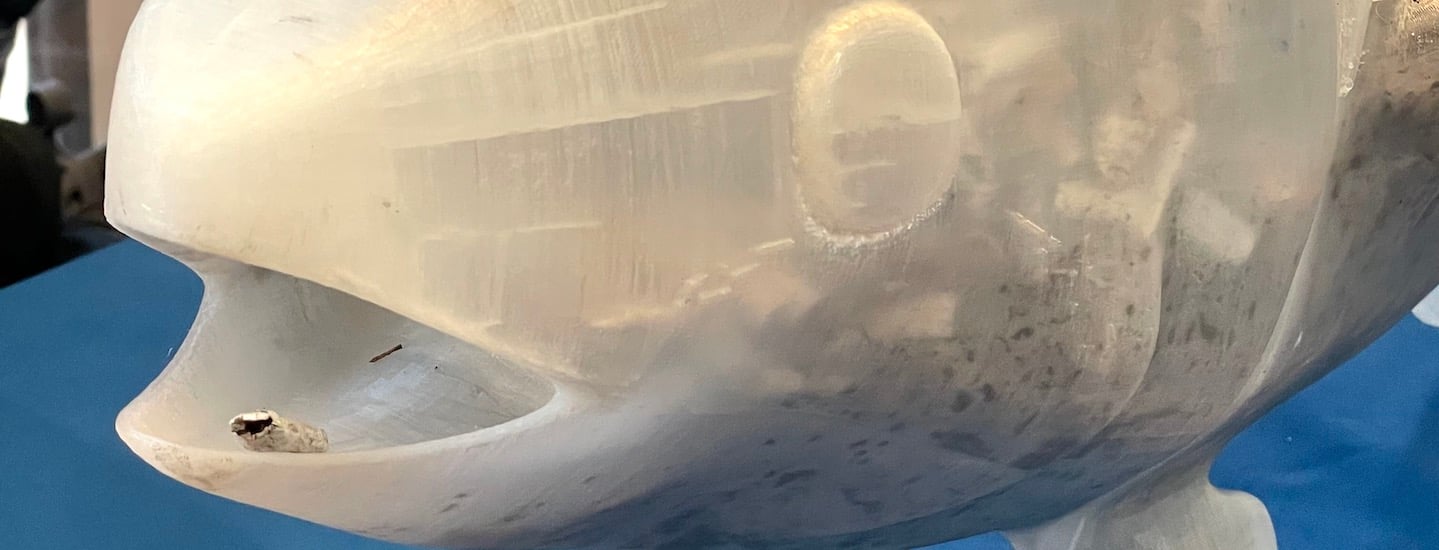
(Demand a Strong Global Plastics Treaty to Protect Our Ocean!)
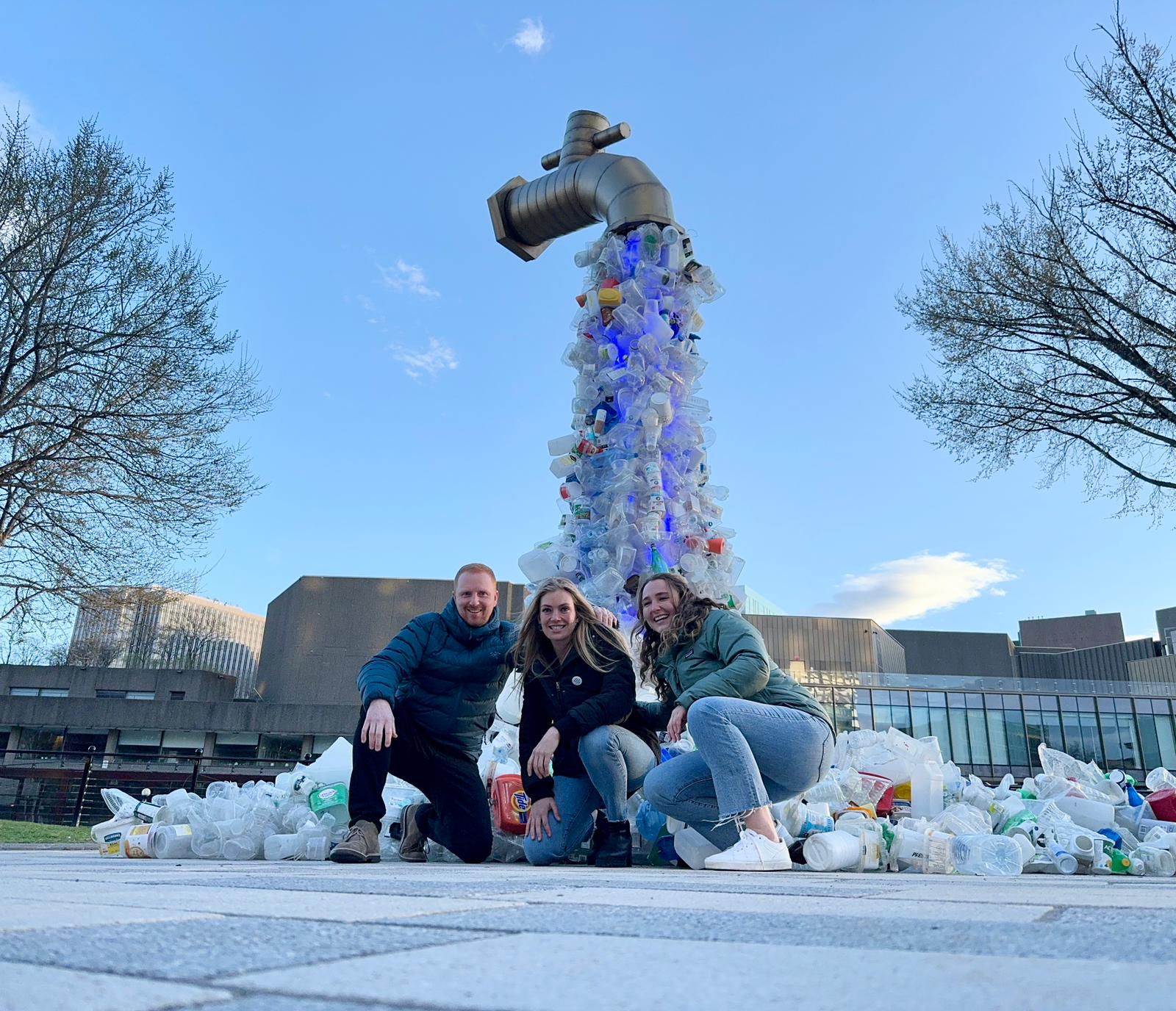 Surfrider Foundation Canada's Executive Director Lucas Harris, Chapter Manager Lilly Woodbury and Surfrider Foundation's Club Network Coordinator Carolyn Curtin
Surfrider Foundation Canada's Executive Director Lucas Harris, Chapter Manager Lilly Woodbury and Surfrider Foundation's Club Network Coordinator Carolyn Curtin
Surfrider staff and activists continue to brave snow flurries and a barrage of false advertising by the plastic industry at the United Nations Global Plastics Treaty negotiations in Ottawa, Canada. While trucks circle the capital city’s Shaw Centre with images and narratives hyping the “greatness” of plastics, inside the building, international delegates, frontline activists, and nearly 200 oil and chemical lobbyists are trying to influence the outcome of the treaty. Will the result – expected to be finalized by the end of this year – be one that meets the moment, truly addressing the health and climate harms perpetuated by plastic production? Or will this global opportunity to solve a global crisis fall short?
So far, the United States delegation, which holds outsized influence on the outcome due to having the world’s biggest economy, and being the top global producer of oil and gas, and the leading contributor of plastic waste, globally, has so far refused to consider committing to capping production or binding measures that exceed existing law. The negotiations take place through April 29, with a final Intergovernmental Negotiating Committee (INC) meeting taking place in late November.
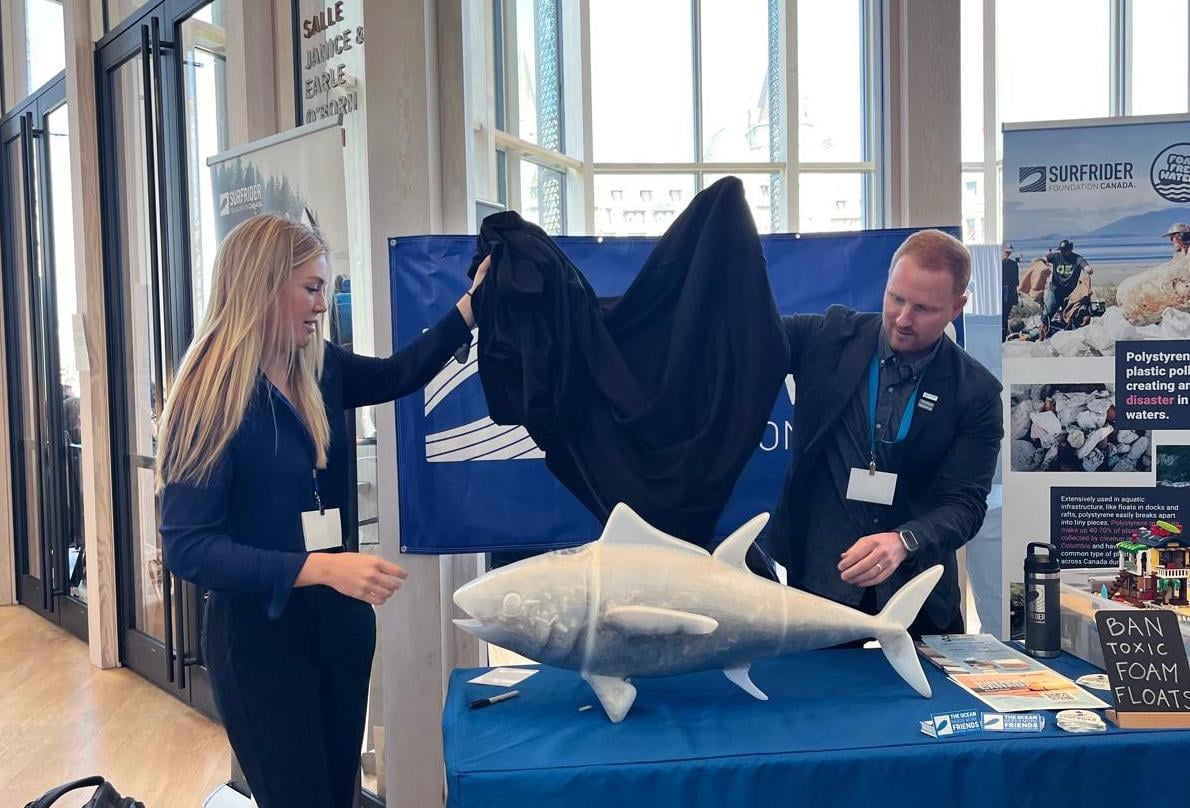
Surfrider Foundation Canada's Chapter Manager Lilly Woodbury and Executive Director Lucas Harris unveil the 'Smoked Tuna' at the Plastic Action Zone
In addition to the formal negotiations, the Canadian government created a “Plastic Action Zone” (PAZ) across the street at the National Arts Centre, providing an opportunity for additional informative presentations and panel discussions.
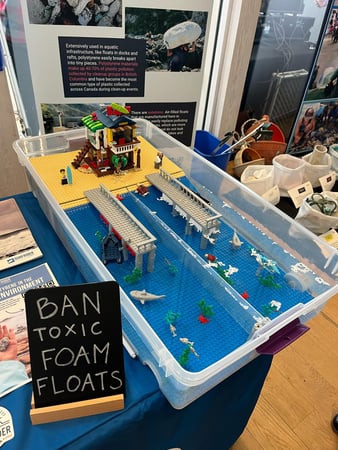 Surfrider Foundation Canada was one of only a few environmental nonprofit organizations to secure a booth in the PAZ, tribute to our global affiliate’s resounding success with campaigns in British Columbia and beyond. The booth features an innovative visual demonstration of how foam-filled docks pollute the marine environment, plus a “Smoked Tuna” display consisting of a 3D-printed tuna filled with cigarette butts collected from the heavily littered streets of Ottawa – and, yes, that is as cool and disgusting as it sounds! Surfrider Canada and partners unveiled the Smoked Tuna during a media conference on Wednesday as part of their global Hold Onto Your Butts efforts, and will continue to fill it throughout the week, a sadly simple, if gross, task.
Surfrider Foundation Canada was one of only a few environmental nonprofit organizations to secure a booth in the PAZ, tribute to our global affiliate’s resounding success with campaigns in British Columbia and beyond. The booth features an innovative visual demonstration of how foam-filled docks pollute the marine environment, plus a “Smoked Tuna” display consisting of a 3D-printed tuna filled with cigarette butts collected from the heavily littered streets of Ottawa – and, yes, that is as cool and disgusting as it sounds! Surfrider Canada and partners unveiled the Smoked Tuna during a media conference on Wednesday as part of their global Hold Onto Your Butts efforts, and will continue to fill it throughout the week, a sadly simple, if gross, task.
Meanwhile, back at the Shaw Centre, talks continue. Our friends at Break Free From Plastic have provided a useful list of key moments, ✅ inspiring and (✖) disappointing, from negotiations so far...
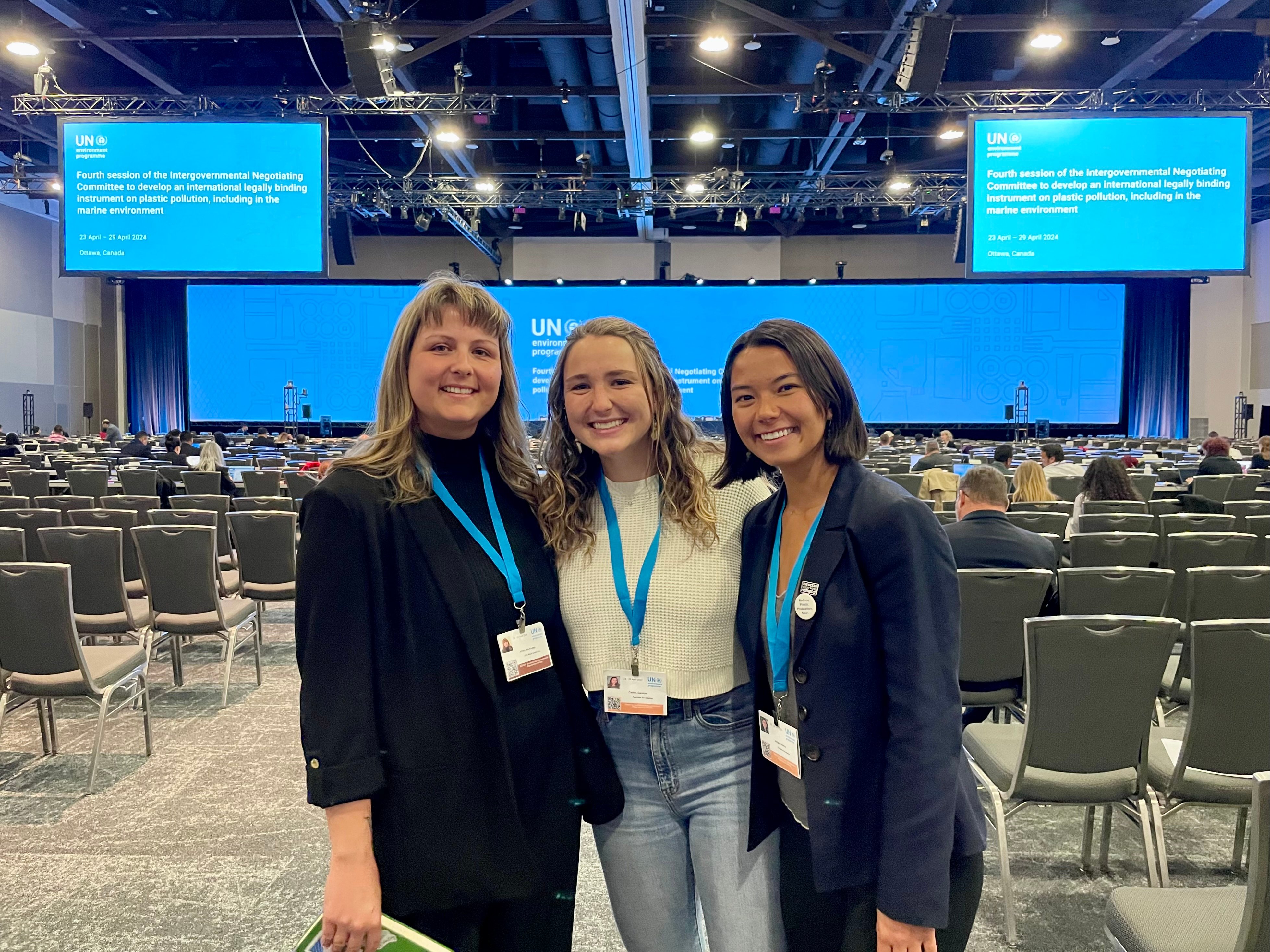 Cape Fear Vice Chair Sam Athey, Surfrider Club Network Coordinator Carolyn Curtin and Cal Poly SLO Sustainability Coordinator Audrey Gregg in Ottawa for the UN Global Plastics Treaty negotiations
Cape Fear Vice Chair Sam Athey, Surfrider Club Network Coordinator Carolyn Curtin and Cal Poly SLO Sustainability Coordinator Audrey Gregg in Ottawa for the UN Global Plastics Treaty negotiations
Tuesday, April 23
✅In their opening statements, many countries, including Canada, Brazil, Guatemala, and Malaysia, highlighted the need for a treaty that protects human health.
✅Many Member States, including Palestine, on behalf of the APG, Ghana, on behalf of African states, Samoa, on behalf of AOSIS, Malawi, on behalf of HAC, Philippines, Bangladesh, and Malaysia, called for a treaty that encompasses the full life cycle of plastics.
✅Additionally, many countries, including Palestine, on behalf of the APG, Ghana, on behalf of African states and Samoa, on behalf of AOSIS, and the EU, called for intersessional work to take place between INC-4 and INC-5.
✅In the afternoon, members of the African states, including Senegal, Ghana, and Uganda and members of the GRULAC states, including Uruguay and Chile, called for substantial work to begin. Contact groups started later in the day.
✅Observers including the Scientists Coalition, Stop Tobacco Pollution Alliance, the Indigenous Peoples Caucus, UN High Commissioner for Human Rights, and COARE on behalf of the NGO Major Group, delivered strong interventions.
✅Creative campaigns have been organized by civil society groups to bring important issues to delegates’ attention.
✖ The minority “like-minded group” that emerged at INC-3 seems to be materializing into a more formal group. They now consult regularly and during the opening plenary, Kuwait took the floor on behalf of the group. Alongside a handful of other polymer- and plastics-producing countries, they called for low-ambitious measures, including limiting the treaty scope.
✖ Although voting-based Rules of Procedure have been adopted provisionally at previous INCs, some countries continue to call for consensus in decision-making, which could be a strategy to weaken measures to reduce plastics production.
✖ Visa issues prevented many observers, including frontline activists from the global south, from arriving in Canada on time and participating in the negotiations.
INC-4 Champion of the Day
Today’s Champion is Rwanda for speaking up about the need to bring the ambitious spirit behind UNEA 5/14 to Ottawa, stressing that the majority of countries, particularly in Africa, and members of the High Ambition Coalition, support the reduction of plastics production as a means to end plastics pollution proliferation once and for all.
The plastic industry attempting to distract from the harm caused by fossil fuel extraction, toxic production, microplastics, and destructive impacts of unnecessary single-use plastics.
Wednesday, April 24, 2024
✅Countries spent the day in two Contact Groups and some subgroups (Contact Group 1 focused on Part I, elements 1, 2, 3, and 4 of the text, and Contact Group 2 on Parts III and IV).
✅ During the discussions, many countries continue to reaffirm the UNEA 5/14 resolution that mandates a legal instrument that addresses the full life cycle of plastics.
✅We heard countries supporting voting mechanisms as a decision-making process when consensus cannot be reached.
✅ Many countries continued to support ambitious measures, including protecting human health from the impacts of petrochemical extraction and plastic production, as well as strong global obligations and the development of financial mechanisms that prioritize those disproportionately affected by plastic pollution.
✅ Aamjiwnaang First Nations, Society of Native Nations, and Keepers of the Water held a press conference calling out the disproportionate impacts of plastics pollution across Turtle Island, including an ongoing benzene exposure caused by the local INEOS facility.
✅In a conversation with observers on Sunday, U.S. delegates agreed to include language around extraction in the treaty preamble. Today, U.S. agencies met with frontline groups and allies to discuss domestic action plans. Until they directly address extraction and production measures, neither of these is doing anywhere near enough for impacted communities.
✅ At a side event on capacity building, Indonesian activists called for women-led training and skills development (including Indigenous Knowledge) and fewer subsidies and incentives for plastic industries.
✖ Contact group 1 was quite disorganized. Countries spent precious time reconvening on multiple occasions in different rooms, and experiencing technical and wifi issues, all of which contributed to hindering the already-complex negotiation process.
✖ A handful of loud voices called for excluding extraction of raw materials and plastic production from the scope of the treaty despite the fact that the UNEA 5/14 resolution clearly mandates the treaty must address the full life cycle of plastics.
✖ In a desperate attempt to promote its narrative, the plastic industry is placing pro-plastic ads near the negotiation venue.
INC-4 Spoiler of the Day: ExxonMobil
Today’s spoiler of the day goes to ExxonMobil and the International Council of Chemical Associations for their efforts to push back on curbing plastic production and downplaying the significance of plastic pollution in the media this week.
Karen McKee, head of product solutions for ExxonMobil [and chair of the International Council of Chemical Associations]: “The issue is pollution. The issue is not plastic …A limit on plastic production will not serve us in terms of pollution and the environment.”
Exxon leads industry fight against UN plans to limit plastic, Financial Times, 22 April 2024
At least five ExxonMobil executives are participating in the INC-4 negotiations in Ottawa. ExxonMobil's vested interest in perpetuating plastic consumption hinders meaningful progress of the negotiations towards a Global Plastics Treaty.